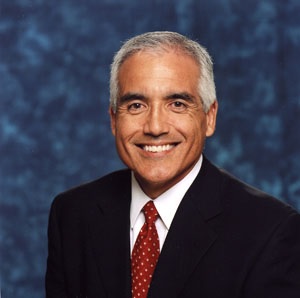
Most City College administrators will see a 10 percent increase in their next paycheck – plus back pay retroactive to July 1 – after the Board of Trustees voted Sept. 26 to ignore the recommendation of its Budget and Audit committee and instead authorize administrative raises before seeing the results of an independent financial analysis to determine if the raises are fiscally feasible and in line with other institutions.
The raise includes a 3.26 percent cost-of-living increase, covered by the state and paid to all employees. The college is therefore only responsible for covering a 6.74 percent increase, which is only being given to non-senior administrators.

Chancellor Mark Rocha said the cost of his new plan was much lower than the original he put forward, which was heavily opposed by the faculty union.
“In my original proposal, the total incremental cost to the budget that was adopted by the board was $588,000,” Rocha said. “Under this proposal, the cost is $293,875.”
But that’s not exactly true.
Some basic arithmetic shows the salary data released the night of the meeting is not consistent with Rocha’s claim. Totaling the salaries of all non-senior administrators, then taking 6.74 percent, reveals the yearly cost of the raises to be $538,425 under the revised proposal.
That’s an increase of 83 percent from the stated estimate.
Rocha’s chief of staff, Leslie Milloy, said Rocha was only referring to the portion of the raises that would be paid for from the college’s general unrestricted funds.
“We get state funding, and we get other [money] that comes from categorical funds,” she said. “We also apply for grants…but we have to spend it on certain things. So we can spend it on certain people that do certain kinds of work.”
In other words, the administrators can still get raises, but the accounting allows Rocha to downplay them.
The original proposal Rocha sent to the Budget Committee called for hefty raises, but it was difficult to determine exactly how big a bump employees would see based on information provided by the college. Under that proposal, the starting salary for some administrators would increase by $100,000 or more – but only a hypothetical employee at the very bottom of the salary schedule would have seen a six-figure increase.
The college also released a list of the 100 highest-paid employees and what each individual’s new salary would be under the proposed plan. But the list only included “total earnings” for each employee in 2018, rather than base salary, making it impossible to do an apples-to-apples comparison.
The full board was scheduled to take up the proposal Sept. 26.
But just hours before the meeting, the chancellor substantially amended his proposal to instead give all non-senior administrators a 10 percent pay hike immediately, and to commission an independent compensation study to determine if additional raises are warranted. Senior administrators would defer seeing any raise until the study was completed. Paper copies of the new proposal were handed out at the meeting, but it took longer for the changes to be reflected on the agenda posted online.
The new proposal passed 5-1, with Trustee Ivy Lee – the chair of the Budget Committee – the sole dissenting vote. She alluded to issues with the Brown Act and timely public notification in her comments.
“For trust to exist, we need to apply the rules fairly and consistently – including our adherence to the Brown Act, and the district’s own Sunshine Ordinance,” Lee said at the meeting.
First passed in the 1950s, the Brown Act ensures the public’s right of access to local government meetings. It only allows local legislative bodies to take action on items which appear on their meeting agenda ahead of time, and dictates how far in advance agendas must be posted.
It was not immediately clear if the Brown Act had been violated by drastically changing an agenda item at the last-minute. Milloy said the college’s general counsel advised them it was not an issue in this case.
Even if true, making such radical changes to a proposal immediately before a meeting doesn’t give the public – or trustees – time to analyze it to fully understand what’s being voted on.
The college has not released enough information to be able to independently verify how much the original proposal would have cost. Proposed salaries were only shared for administrators who are among the top 100 highest-paid employees, which only covers about half of them. But we can get a good ballpark amount by adding up the cost of the raises for administrators who we do have data for and assuming a modest 6.74 percent increase for everyone else, which yields an estimate of about $925,000.
As a ballpark figure, Milloy said that sounded about right.
Milloy said many of the grants in question are awarded for multiple years at a time. While they are not guaranteed to be renewed, they are generally pretty reliable, she said.

